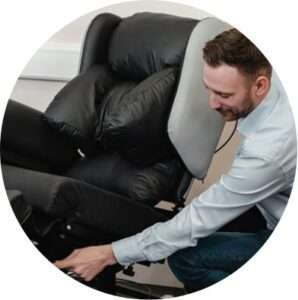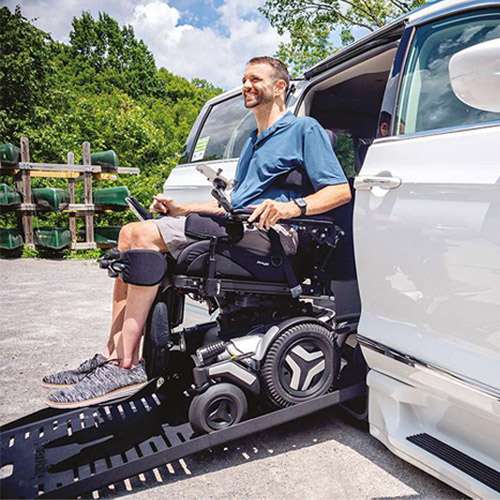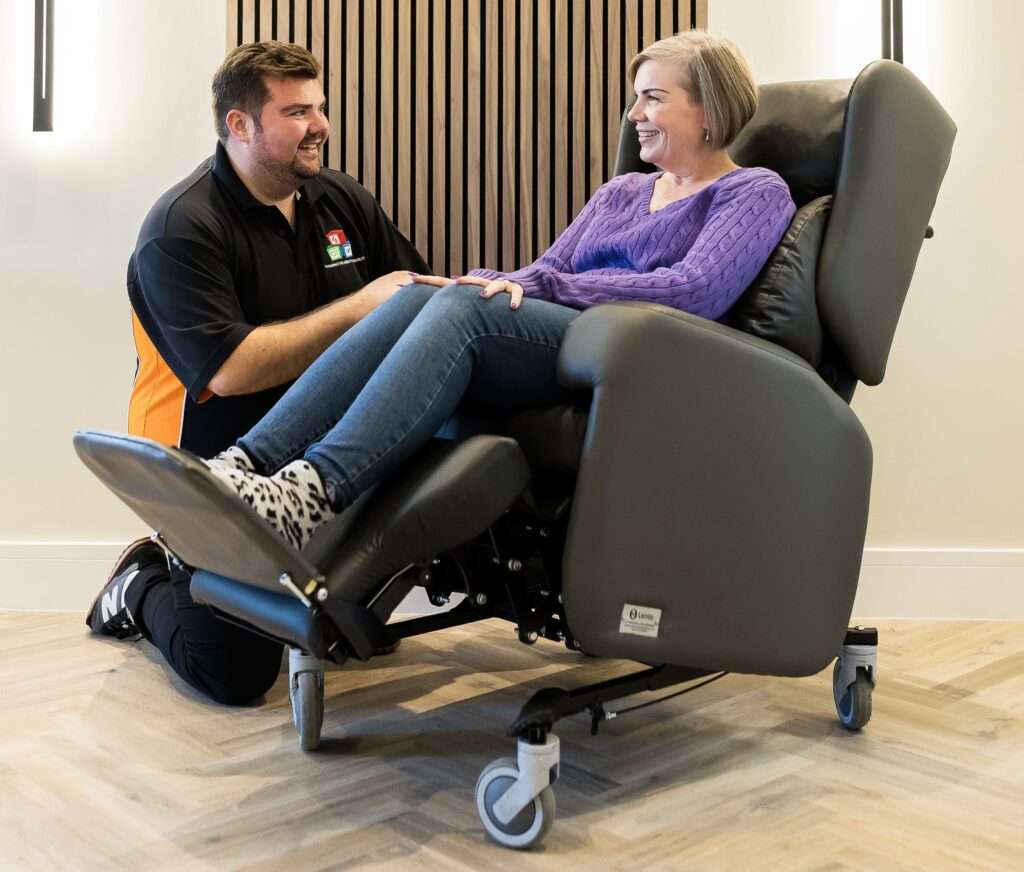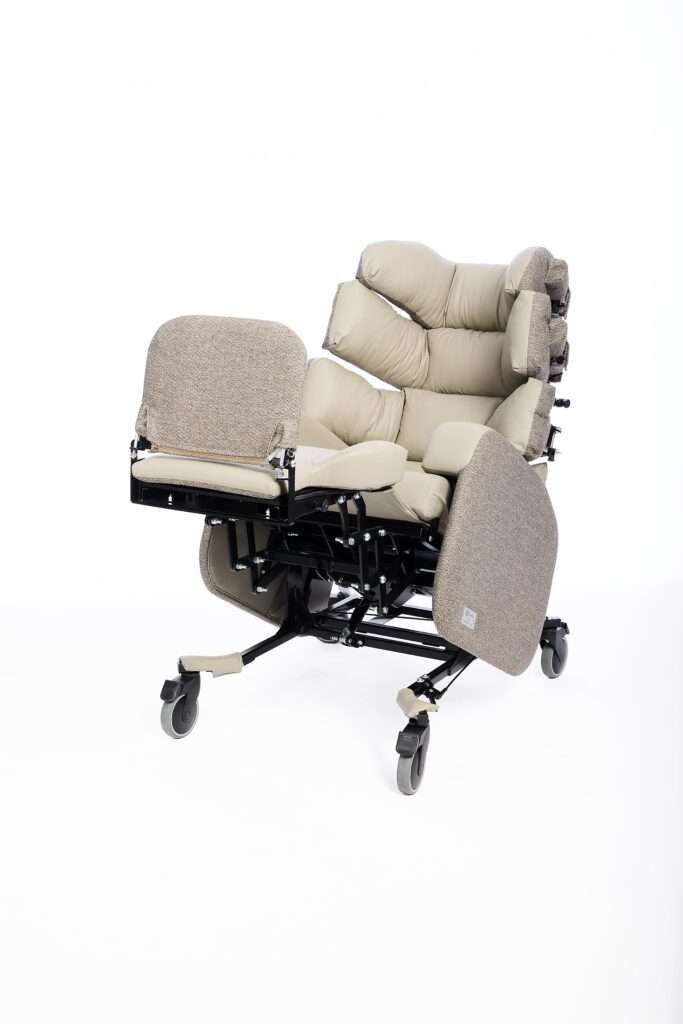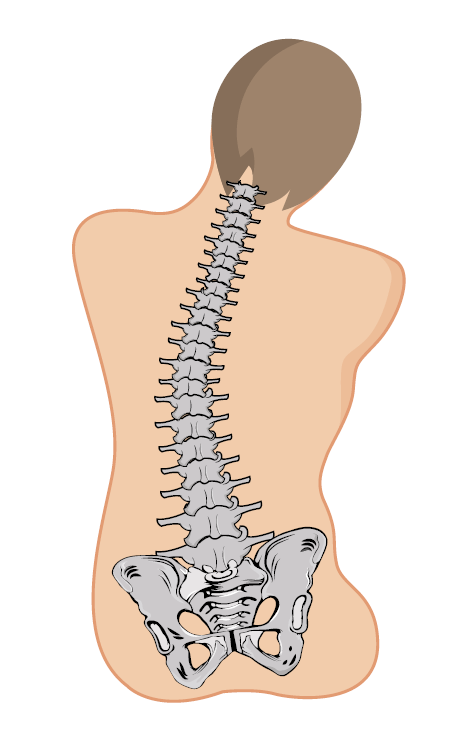From our extensive work with case managers and their clients over several years, we have built a large portfolio of experience in specifying electric wheelchair solutions.
Medical case managers work with their clients to help them rehabilitate and fulfil their health, social and employment needs. As part of this process, assistive technologies like the Permobil powerchairs give these clients the ability to increase their independence.
Jump straight to...
Case Management Payouts
If clients have secured compensation due to the cause of their injuries, such as medical negligence, the case manager will help spend these funds and find the best equipment for them.
We have worked with a wide range of case management clients, including those with Cerebral Palsy, acquired brain injury or those who are paraplegic.
If someone has suffered life-changing injuries due to a road traffic accident, the emotional & physical challenges of adapting to new circumstances are considerable. This is where Permobil wheelchairs with their ‘human-centric’ design come into their own, helping them achieve their lifestyle needs and goals.
When looking at an electric wheelchair and considering someone’s mobility needs, it helps to start with what is important to them and the goals they want to achieve. This could be travelling more, outdoor pursuits and activities, more social interaction or greater independence at home, or indeed a combination of these goals.
Once this has been established, this helps to point the client and case manager in the direction of the model of chair that will help them to achieve these goals.
Permobil Chairs
Permobil started in Sweden over 50 years ago and have been supplying high-quality electric wheelchairs around the world ever since. The late Stephen Hawking, renowned physicist and Cambridge mathematician, used a modified F3 Corpus wheelchair which incorporated his speaking device.
Stephen Hawking experienced early onset MND at the age of 21, which did not progress as quickly as doctors expected. Despite his declining mobility as the disease progressed, his work on relativity and the physics of black holes produced ground-breaking new theories, earning him numerous academic awards over the course of his lifetime and the prestigious post of Lucasian Professor of Mathematics at Cambridge University.
Permobil Chairs – Mid or Front-Wheel Drive?
The Permobil chairs we sell fall into one of two main categories, mid-wheel (‘M’ range) or front-wheel (‘F’ range).
Mid Wheel Drive
The mid-wheel models have the main wheels positioned in the middle of the chair with castors front and back.
This positions the user directly over the drive wheels, lowering the centre of gravity and giving excellent stability.
The front and rear castors provide extra stability to make sure the chair doesn’t tip, even when going over uneven ground or bigger kerbs and slopes.
The 360⁰ turning radius is much smaller than front/rear-wheel models, allowing the user to perform full turns in tighter spaces.
With six wheels, the user will feel bumps more because more wheels are in contact with the ground, so there’s a slight trade-off on comfort. This means they aren’t always suitable for users with conditions like spasticity who are particularly sensitive to vibration.
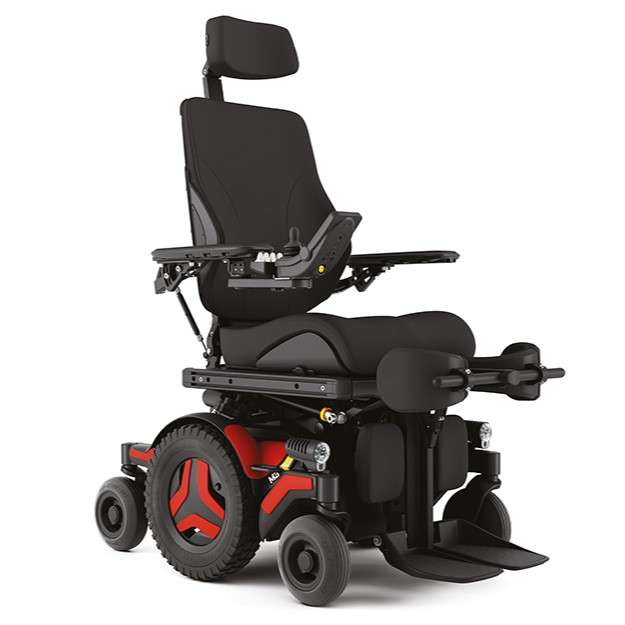
Permobil MWD chair
Front Wheel Drive
Front-wheel power chairs offer a smoother ride as there are only four wheels on the ground, so you feel the impact of rough surfaces much less than in a six-wheeled chair.
Front-wheel power chairs have great ability for obstacle climbing, as the biggest wheels are at the front. As the drive is so smooth, they are often easier for people with finger or chin controls to use.
A final thing to consider is the turning radius, as this is larger with front-wheel models, and gives less manoeuvrability when indoors and navigating tight corners and spaces.
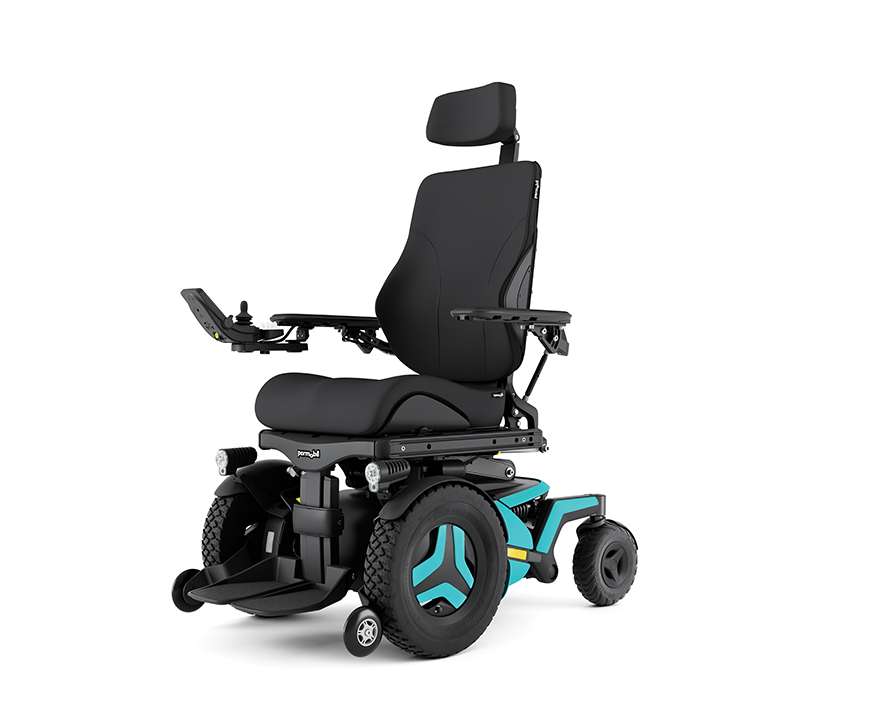
Permobil FWD Chair
Client Goals
Looking at the Permobil range from the perspective of client goals and what they want to achieve, these would be our recommendations.
Travel & Outdoors
The M5, the larger and more beefy of the M-range models, is more suited outdoor terrain and travelling over longer distances, with a wider seat and higher speed range.
If front-wheel drive is preferred, the F5 is also a great chair for those who like to be outdoors and enjoy more active country pursuits. It’s ideal for those who live on farms or rural estates and drive over varied terrains on a daily basis. The F5 has a higher battery range, max speed and kerb-climbing capabilities than the F3.
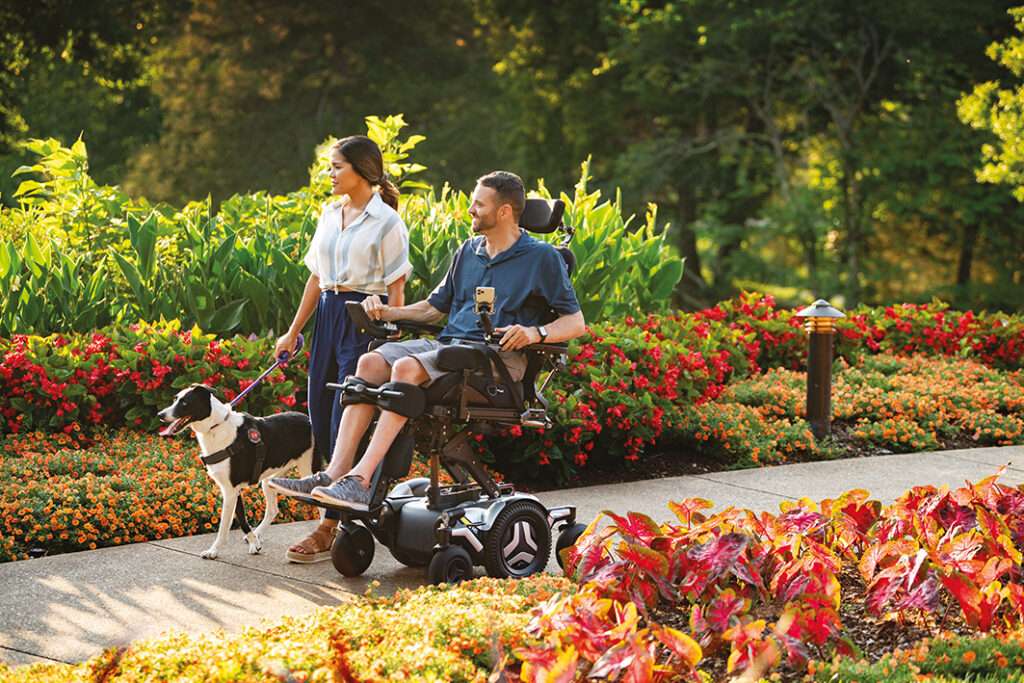
Permobil M5 Corpus Electric Wheelchair
Social Activities
The F5 Vertical Stand model enables people to stand who are unable to do so independently, helping them interact better socially with other people at eye-level, and enjoy the physical benefits of standing. The F5 Vertical Stand can also be driven whilst in the stand position, allowing the user to move around easily.
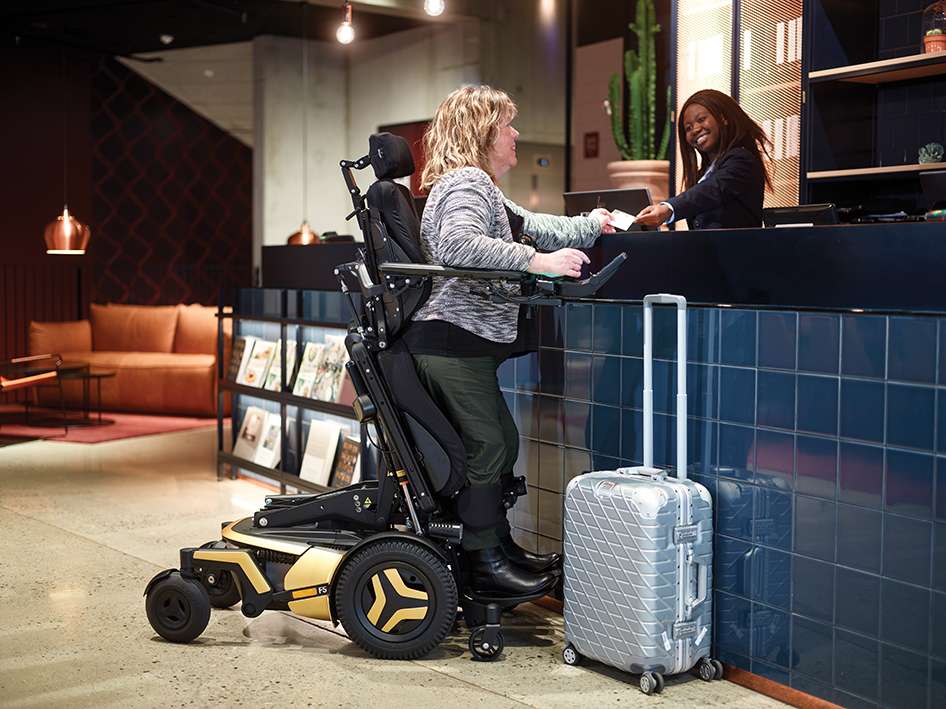
Permobil F5 Corpus VS Electric Wheelchair
Independence at Home
The M Series also includes Active Reach technology, tilting the chair forward so that the user can reach things from shelves straight-on, rather than trying to get them from the side.
For people who prefer to stay indoors mostly, and just make short trips out to the shops or local park, the F3 is often the go-to chair.
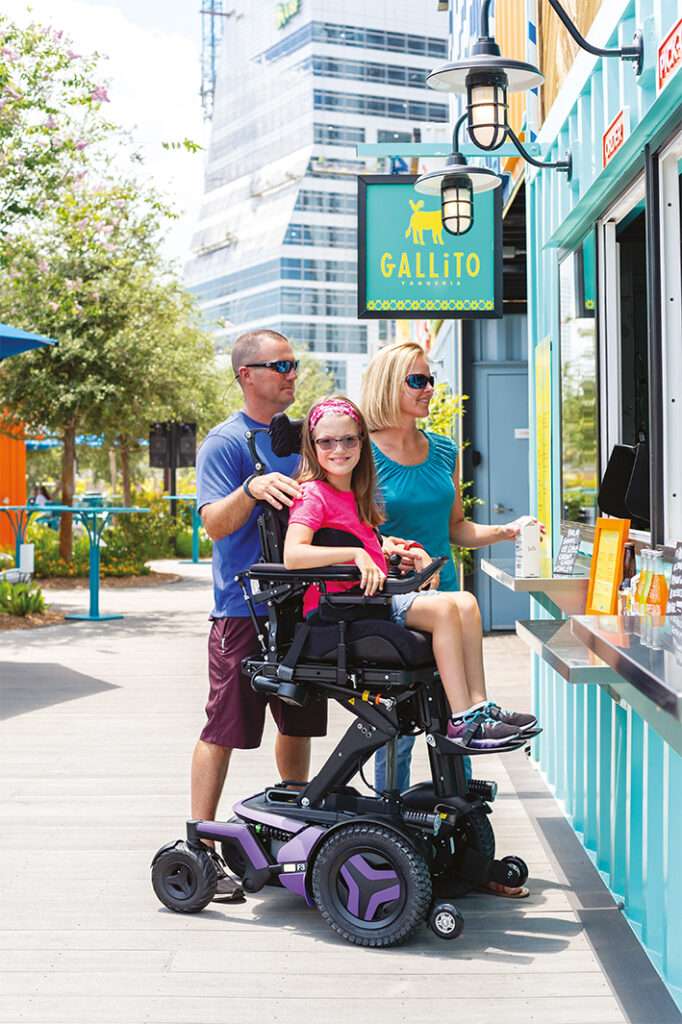
Permobil F3 Corpus Electric Wheelchair
Finding the Right Powerchair for You
To help with choosing a wheelchair, we often recommend having a full assessment with one of our qualified mobility specialists and your case manager, to ensure you get the right model and customisations for your needs.
We’ve helped many clients transform their quality of life by specifying the right powerchair for them, read about some of our case studies here. We’re passionate about matching people with the right chair for them, and would love to hear from you if you or your client needs a powerchair.
Free & No Obligation Assessment



